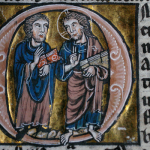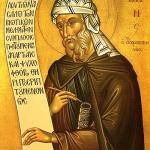Last updated on: January 27, 2017 at 1:02 pm
By
CNA Daily News
Vatican City, Jan 27, 2017 / 06:02 am (CNA/EWTN News).- With Pope Francis set to visit Ireland in 2018 – making him the first Pope to visit the country in nearly 40 years – Ireland's ambassador to the Holy See said it's an important trip, especially given the shared interest between the Vatican and Irish government on a number of key issues. “It has been almost 40 years since a Papal visit to Ireland, the last visit being that of Pope John Paul II in 1979,” Irish ambassador Emma Madigan told CNA in an interview. So a papal visit in 2018 “would be hugely significant.” Of particular interest to the Irish people is the constant attention Pope Francis gives to issues such as migration and reaching out to the poor and marginalized, she said, adding that this “resonates very much with the Irish people.” “In engaging with Pope Francis directly, his clear commitment to tackling issues such as social exclusion, youth unemployment and the migration crisis is striking,” she said, noting that on a personal level, “I have found Pope Francis to be very warm each time we meet.” These topics were all major talking points between Pope Francis and Irish Prime Minister Enda Kenny T.D. during the latter's visit to the Holy See in November, in addition to unemployment and challenges posed by the recent referendum in the U.K. on its membership in the European Union. While the political, social and ecclesial situation in Ireland has changed significantly since John Paul II's visit, there are hopes that Pope Francis will make the step the Polish Pope wasn't able to do, and cross the border into Northern Ireland. Ambassador Madigan said the possibility is still being discussed, but stressed that the Pope's primary reason for visiting Ireland is for the World Meeting of Families (WMOF) in Dublin, an event the Irish government took the opportunity to “warmly welcome” during Kenny's visit. The government, she said, will “provide every appropriate assistance” for both the Pope's visit and the WMOF, which is being organized by “a good Dublin man, Cardinal Kevin Farrell,” who heads the Vatican office for Laity, Family and Life, as well as Dublin Archbishop Diarmuid Martin. In addition to the Pope's trip and the WMOF, which were both big points of discussion during the Irish bishops’ recent ad limina visit to Rome, Madigan also offered her reflections on her tenure as ambassador to the Holy See, key points of collaboration, and what the Pope’s presence in Ireland could mean in the aftermath of Brexit. Below is the full text of CNA's interview with Ambassador Madigan:You have been in Rome for two years. How has your experience been so far working with Pope Francis? I have been very privileged to work in this position now for just over two years – it is a fascinating assignment. The Holy See has a huge global network and, I think, a unique insight into societies and developments across the world. It has views on regional issues in the Middle East, Sub-Saharan Africa, Ukraine, Colombia and Venezuela and situations of tension around the globe as well as on broader questions of migration, human rights, protection of religious minorities and promoting sustainable development. In engaging with Pope Francis directly, his clear commitment to tackling issues such as social exclusion, youth unemployment and the migration crisis is striking. On a personal level, I have found Pope Francis to be very warm each time we meet. What are the greatest areas of collaboration between the Holy See and Ireland? Are there any specific projects now, or being planned for the future? Ireland and the Holy See are both firm believers in the need for effective multilateral cooperation among nations to face global challenges. We are believers in a peaceful rules-based world and in the power of dialogue. Our long-standing relationship takes in many global issues of mutual interest, including human rights, sustainable development, eradicating hunger, climate change, disarmament, migration and human trafficking, freedom of religion or belief, and peaceful resolution of conflicts. In particular during the recent visit of the Taoiseach (Prime Minister), Mr. Enda Kenny T.D. to the Holy See last November, subjects discussed included recent developments in Europe, in particular the migration and refugee crisis, the task facing the European Union in tackling social exclusion and youth unemployment and political and institutional challenges including those arising from the recent referendum in the UK on its membership of the European Union. During the visit, the Taoiseach took the opportunity to warmly welcome the decision by Pope Francis to hold the 2018 World Meeting of Families in Dublin and expressed the Government’s full support for the invitation issued by the Irish Bishops’ Conference for him to visit Ireland. The Taoiseach assured Pope Francis that the Government would provide every appropriate assistance for such a visit. Planning for the World Meeting of Families is being undertaken by the Dicastery for the Laity, Family and Life – led of course by a good Dublin man, Cardinal Kevin Farrell – and Archbishop Diarmuid Martin as bishop of the host diocese.Pope Francis has said that he (or his successor) will come to Ireland in 2018 for the World Meeting of Families. What would a papal visit signify for the country? It has been almost 40 years since a Papal visit to Ireland, the last visit being that of Pope John Paul II in 1979 and therefore I think a visit in 2018 would be hugely significant. Pope Francis’ focus on issues such as migration and helping the poor and marginalised resonates very much with the Irish people. It's rumored that he wants/plans to cross the border into North Ireland. How do you think that gesture would be received on either side? Pope John Paul II was unable to visit Northern Ireland in 1979 but the situation in Northern Ireland has been transformed since then. The principal purpose of the Pope’s visit to Ireland would be to attend the World Meeting of Families and possible plans to widen that schedule would be looked at in due course in conjunction with the Bishops’ Conference. The Pope's visit will fall in the aftermath of Brexit. As someone constantly speaking about unity, could his message perhaps help to ease the situation depending on how the border is handled? Negotiations on the UK’s exit from the EU will begin as soon as possible after the UK triggers Article 50 of the EU Treaties, which is expected by the end of March. There will then be two years for completing the negotiations. The Irish Government has been clear about its priorities as we move ahead and these remain our citizens, our economy, Northern Ireland, our Common Travel Area (with the UK) and the future of the EU itself. A key goal is to work to ensure that the work of the peace process is preserved. To this end, the Irish Government will continue to work closely with the Northern Ireland Executive, as we have done for many years, including through the North South Ministerial Council (a Good Friday Agreement institution). The EU has played a key role in progressing the peace process in Northern Ireland and continues to be a strong supporter. Ireland is a proud member of the EU and our membership, based on the values we share with our European Partners, has been central to Ireland’s economic and social development over the past 40 years. Read more















